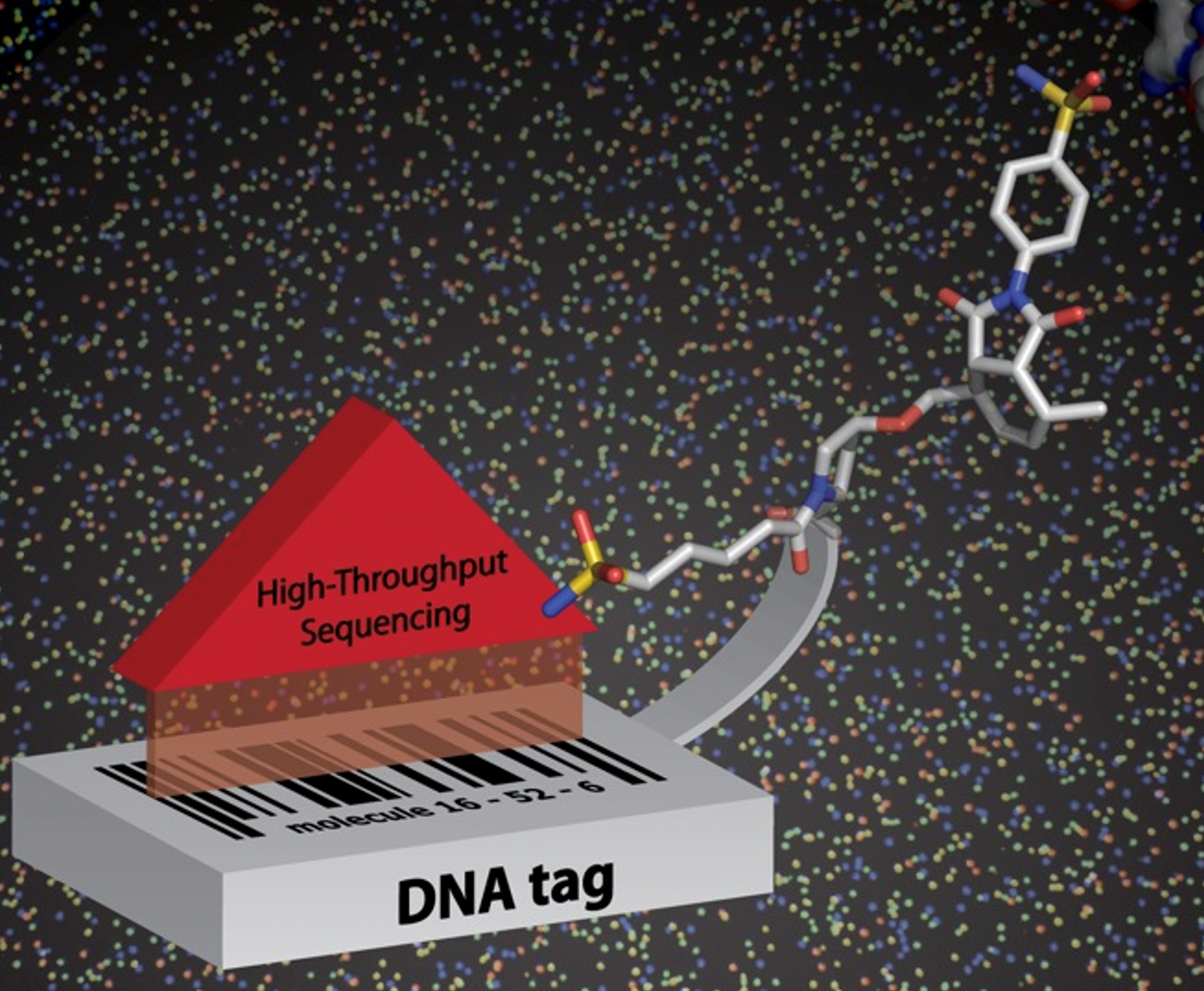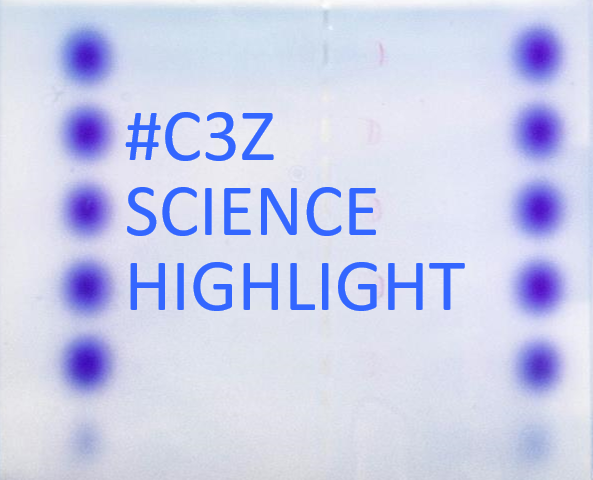Stereo- and regiodefined DNA-encoded chemical libraries enable efficient tumor-targeting applications.
Favalli N, Bassi G, Pellegrino C, Millul J, De Luca R, Cazzamalli S, Yang S, Trenner A, Mozaffari NL, Myburgh R, Moroglu M, Conway SJ, Sartori AA, Manz MG, Lerner RA, Vogt PK, Scheuermann J, Neri D.
*CCCZ Members in bold

Abstract
The encoding of chemical compounds with amplifiable DNA tags facilitates the discovery of small-molecule ligands for proteins. To investigate the impact of stereo- and regiochemistry on ligand discovery, we synthesized a DNA-encoded library of 670,752 derivatives based on 2-azido-3-iodophenylpropionic acids. The library was selected against multiple proteins and yielded specific ligands. The selection fingerprints obtained for a set of protein targets of pharmaceutical relevance clearly showed the preferential enrichment of ortho-, meta- or para-regioisomers, which was experimentally verified by affinity measurements in the absence of DNA. The discovered ligands included novel selective enzyme inhibitors and binders to tumour-associated antigens, which enabled conditional chimeric antigen receptor T-cell activation and tumour targeting.
Nat Chem. 2021 Apr 8.
doi: 10.1038/s41557-021-00660-y
Go to publication
